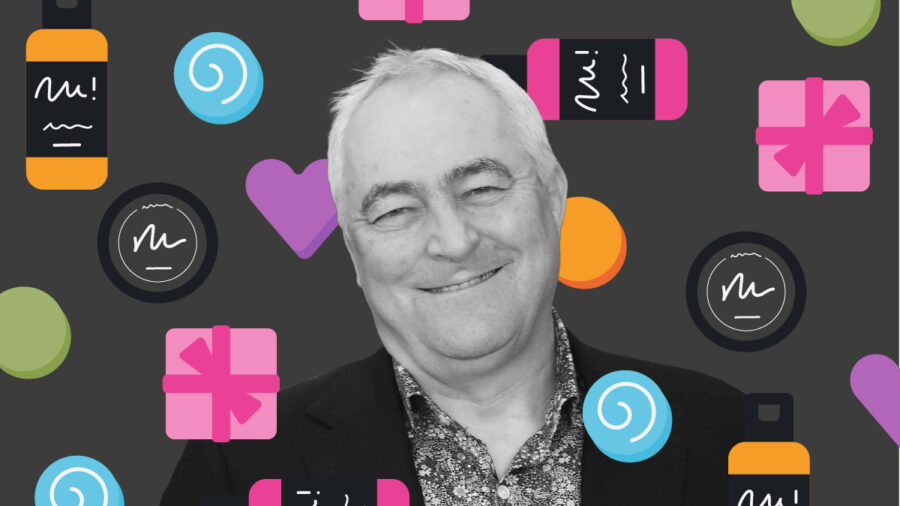
Modern business leaders must be comfortable with compromise. Geopolitical turmoil, climate change, culture wars and shifting consumer expectations mean that every decision is a delicate balancing act.
In a time of great uncertainty, employees, investors and consumers are all asking companies to stand for something. Support for businesses that stake out a position on social or ethical issues has rebounded, according to a recent poll by Gallup. Over half of US consumers surveyed said businesses should take a public stance on free speech (58%), climate change (58%), mental health (57%) and diversity, equity and inclusion (56%). In the UK, consumers want brands to stand against poverty and inequality (45%), fight for animal welfare and wildlife conservation (30%) and tackle racism (29%), according to a study by Attest, a consumer-research platform.
However, for businesses aiming to reach a wide customer base, standing for something is no easy feat. Mark Constantine, the co-founder and CEO of Lush, is candid about this fact. For more than three decades, he has built a global beauty brand that is unapologetically values-led. Lush has never tested on animals and the brand advocates for climate causes and LGBTQ+ rights. But Constantine acknowledges that values are rarely straightforward.
“Every minute of every day you’re weighing up these challenges,” he says. “Have we weighed up values versus commercial viability? Yes. You’re trying to weigh it up all the time.”
Culture as a self-fulfilling prophecy
Some leaders believe that culture cannot be set from the top. It has to emerge organically from the wider body of people who make up an organisation. For Lush, the emergent culture has become a powerful tool for attracting talent. The brand has become a magnet for a number of communities and values-led groups. “We often attract the neurodivergent, the gay and lesbian communities, trans people and vegans,” says Constantine. “We love it. We hope we’re a safe haven for them.”
This creates a self-reinforcing loop, he explains. The culture evolves organically and grows stronger with every new hire. “People join us because they see us as reflective of those communities,” says Constantine. “As they join us we then become more and more reflective of them – we’re always paying attention and listening and adapting to what we hear.”
The cost of values
The commitment to values often comes at a cost, but Constantine says unequivocally that business decisions can’t always be determined by profits alone. Take, for instance, Lush’s decision to stay in Australia, a low-yield market. “We like to be in a lot of markets – we like being there,” he explains. “Even if we lose money in Australia for bloody ever, we will stay there.” The willingness to stay the course is what builds up a spine of resilience and makes it possible for companies such as Lush to pursue purpose even when that conflicts with profit.
According to Constantine, sometimes profit can get in the way of making the right decisions. “In a way, profits are a hindrance, because you might make decisions based on the profit and, in doing so, destroy positive sentiment throughout the business,” he says. For instance, a brand might have a highly profitable operation in a country with a poor reputation for gay rights, he explains: “But you’re still going to celebrate Pride, aren’t you?”
One event in particular is creating tremendous problems for companies that wish to take a stand: the war in Gaza. Leaders across the world are caught between the sometimes competing priorities of providing moral clarity to customers and psychological safety to staff. Here, the policy to listen to stakeholders and pay attention to what matters to them becomes infinitely more complicated. In 2023, the brand faced a backlash after a staff member put a sign reading “Boycott Israel” in the window of one of Lush’s Dublin stores. In response, Lush released a statement saying it “deplores all acts of violence” and wished for “peace and safety for all Israeli and Palestinian people”.
Constantine acknowledges the tension between wanting to support colleagues of all faiths and his own desire to take a stand: “I’m frustrated as hell because I want to say something.”
The power of debate
One way in which Lush’s leadership deals with this tension is by institutionalising debate. Every few months, senior leaders will gather in person – sometimes coming from as far away as Japan or the US – to join so-called mafia meetings.
The name is tongue-in-cheek (an acronym, Constantine says, for ‘meetings to assure future integrity and alignment’) but their purpose is serious. They are opportunities for leaders to air their views – however contentious – and thrash them out.
“I’m always impressed with the standard of debate at Lush,” says Constantine. He explains how important it is to understand the complexities of any given situation and to create opportunities for people to talk them through. “Sometimes you miss the nuance of something and you find you’ve upset someone without even knowing,” he says. “So we thought perhaps if we debated these things in a mafia meeting, we could work out what our position was.”
The most recent mafia debate was around whether or not the brand should be on social media, having declared in 2021 that it was “turning its back on Instagram, Facebook, TikTok and Snapchat, until the platforms take action to provide a safer environment for users”. This would be a significant step for any modern retailer. Not only does it mean sacrificing a lucrative marketing channel, it also means leaving the brand’s message in the hands of any consumers who want to post about it, with no quick way to respond to criticisms or misinformation.
This particular debate was “bloody fabulous”, says Constantine. “Our position is very nuanced and this really moved the conversation on. The person presenting would usually have wanted us back on social media, but her point of view became, ‘Absolutely not, looking at the way it’s developing.’”
Lessons for values-led CEOs
For Constantine, the job of a values-led CEO is not to find neat answers to the pressing issues facing a business, but rather to wrestle with uncomfortable ones. This means creating a business that attracts people who care, establishing a culture where disagreements can be aired safely and accepting that the right path may often feel awkward or costly. It is, he says, like “dancing with calipers” – rarely elegant, sometimes painful, but necessary.
What he offers fellow CEOs is less a blueprint than a mindset. Openness, flexibility and continuous self-education are the raw materials of resilience. And resilience, Constantine says, comes from holding firm to principles, even when they clash with commercial convenience. “Perseverance is the base rock of business,” he says. Put simply, if your values never cost you anything, they’re not really values, they’re just marketing.

Modern business leaders must be comfortable with compromise. Geopolitical turmoil, climate change, culture wars and shifting consumer expectations mean that every decision is a delicate balancing act.
In a time of great uncertainty, employees, investors and consumers are all asking companies to stand for something. Support for businesses that stake out a position on social or ethical issues has rebounded, according to a recent poll by Gallup. Over half of US consumers surveyed said businesses should take a public stance on free speech (58%), climate change (58%), mental health (57%) and diversity, equity and inclusion (56%). In the UK, consumers want brands to stand against poverty and inequality (45%), fight for animal welfare and wildlife conservation (30%) and tackle racism (29%), according to a study by Attest, a consumer-research platform.
However, for businesses aiming to reach a wide customer base, standing for something is no easy feat. Mark Constantine, the co-founder and CEO of Lush, is candid about this fact. For more than three decades, he has built a global beauty brand that is unapologetically values-led. Lush has never tested on animals and the brand advocates for climate causes and LGBTQ+ rights. But Constantine acknowledges that values are rarely straightforward.





